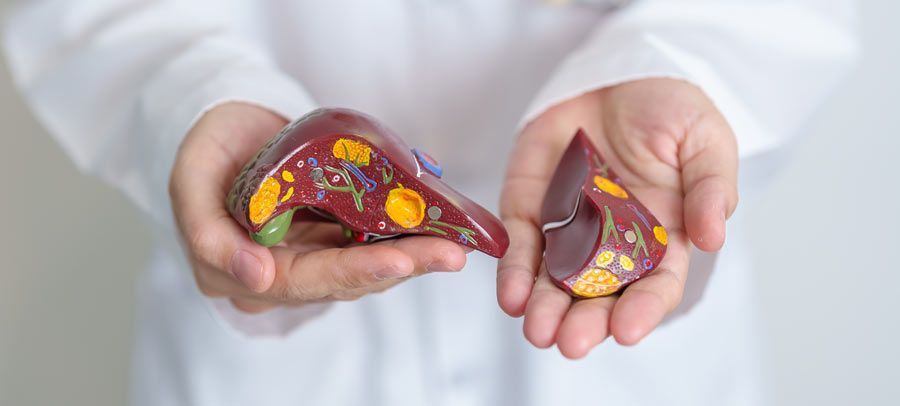The Importance of Mitochondrial Health

Tips To Boost Your Mitochondrial Health
When it comes to your health, mitochondria don't always get the attention they deserve. These tiny, bean-shaped structures inside nearly every cell in your body might be small, but they play a massive role in how you feel, age, and body functions. From producing energy to maintaining overall cellular health, looking after your mitochondria is one of the smartest moves you can make for long-term wellness.
What Are Mitochondria, and Why Do They Matter?
Think of mitochondria as the power plants of your cells. Their main job is to take the food you eat and the oxygen you breathe, then convert them into a usable form of energy called adenosine triphosphate (ATP). Every cell in your body needs ATP to perform its functions, from pumping blood and digesting food to firing neurons in your brain. Without mitochondria working at their peak, your body can't work correctly.
But mitochondria don't just produce energy; they also play a critical role in maintaining cellular health. They manage cellular repair, communication, and even control when a cell should die and be replaced—a process vital for preventing problems such as cancerous growth. Simply put, healthy mitochondria are at the heart of a healthy body.
The Impact of Poor Mitochondrial Health
When your mitochondria aren't functioning well, the effects can ripple through your entire body. Poor mitochondrial health has been linked to a variety of health issues, including:
- Fatigue: Without enough energy production, chronic fatigue can hit hard, leaving you feeling drained no matter how much you rest.
- Aging and cognitive decline: Mitochondria accumulate damage over time, contributing to wrinkles, slower metabolism, memory problems, and even neurodegenerative diseases like Alzheimer's.
- Chronic diseases: Poor mitochondrial function is associated with conditions such as diabetes, heart disease, and even some cancers.
- Weakened immunity: Your immune cells rely heavily on energy from mitochondria. When energy production falters, your body's ability to fight infections and inflammation weakens.
Clearly, taking care of your mitochondria is crucial—not just for feeling energized in the short term, but for slowing aging and reducing the risk of chronic diseases.
How to Improve Your Mitochondrial Health
The good news? You can do a lot to keep your mitochondria functioning at their best. Minor changes to your diet, exercise routine, and lifestyle can significantly impact you.
1. Optimize Your Diet
What you eat directly affects how well your mitochondria work. Focus on foods that support energy production and fight oxidative stress (a significant source of mitochondrial damage).
- Eat plenty of antioxidants like berries, greens, dark chocolate, and nuts to protect mitochondria from damage.
- Add healthy fats such as those in avocados, olive oil, and fatty fish. Mitochondria thrive on good fats as a clean energy source.
- Include CoQ10-rich foods such as organ meats, spinach, and broccoli. Coenzyme Q10 is vital for mitochondrial energy production.
- Avoid processed foods and sugar, which can cause inflammation and strain your mitochondria.
2. Stay Active
Exercise is one of the most powerful tools for boosting mitochondrial health. When you work out, your body demands more energy, signaling your cells to produce more mitochondria and make them more efficient.
- Aerobic exercise like walking, jogging, or cycling gets your heart pumping and improves oxygen delivery, which mitochondria need to work.
- Resistance training helps build muscle, which not only supports your metabolism but also enhances mitochondrial function.
- High-intensity interval training (HIIT) has been shown to be incredibly effective at encouraging mitochondrial growth and improving efficiency.
3. Reduce Stress and Improve Sleep
- Chronic stress and poor sleep are a recipe for mitochondrial dysfunction. Stress hormones can damage mitochondria, while sleep allows your cells to repair and regenerate.
- Practice relaxation techniques like yoga, deep breathing, or meditation to protect mitochondria from stress.
- Prioritize 7–9 hours of quality sleep each night. Create a bedtime routine that includes turning off screens at least an hour before bed.
4. Try Fasting or Time-Restricted Eating
Intermittent fasting or eating within a restricted time window can give your cells a break from constant energy production. This triggers autophagy, a process where damaged mitochondria are cleared out, making way for healthier ones.
5. Limit Toxin Exposure
Chemicals, pollutants, cosmetics, and heavy metals can damage mitochondria. While avoiding all toxins is impossible, you can reduce exposure by drinking filtered water, eating organic when possible, and using natural household products.
The Bottom Line
Your mitochondria might be microscopic, but their impact on your health is enormous. From helping you stay energized to slowing the aging process, these tiny powerhouses are essential to your well-being. By fueling your body with the proper nutrients, staying physically active, managing stress, and adopting a few healthy habits, you can ensure your mitochondria keep you thriving for years to come.
Start small! Swap out processed snacks for a handful of nuts, go for a brisk walk, or add an extra hour of Sleep to your routine. Your mitochondria (and your future self) will thank you!
About the Author
Dr. Dana Cohen emphasizes the importance of proper hydration as a cornerstone of mitochondrial and overall health. Her approach, as detailed in her book Quench, focuses on optimizing hydration at the cellular level. She advocates for strategies like consuming water-rich foods, using structured water, and incorporating healthy fats to improve cellular hydration. Additionally, she highlights the role of electrolytes and natural salts in supporting mitochondrial function and overall vitality.
Sources
- Quench Book by Dr. Dana Cohen MD and Gina Bria


















